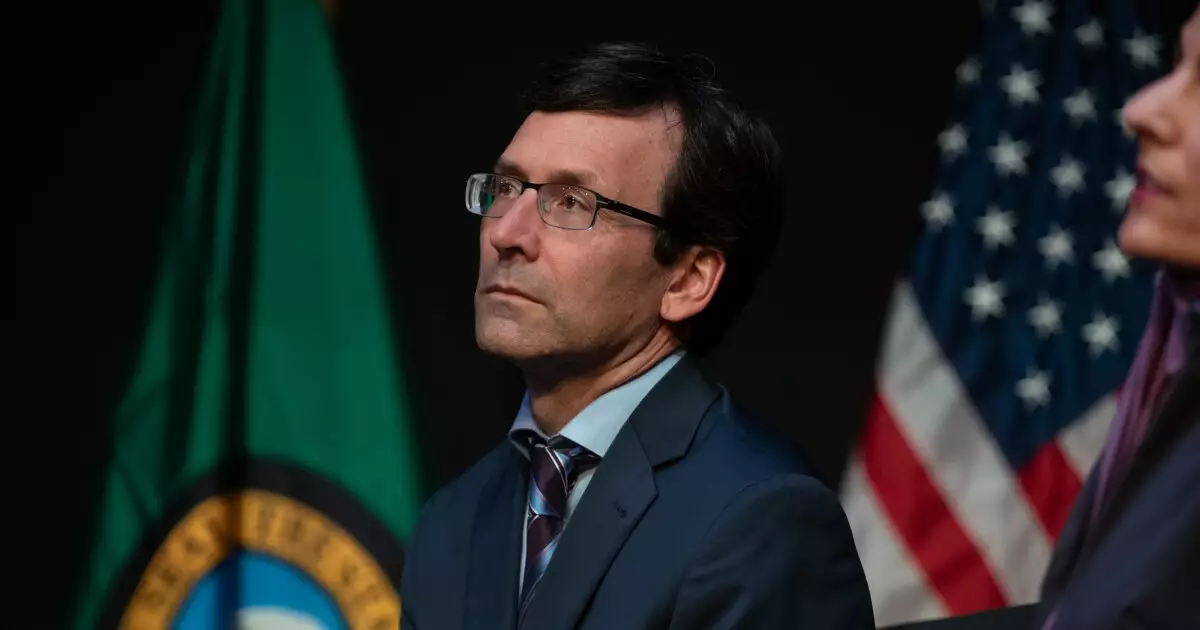The recent budgetary drama unfolding in Washington state highlights a critical lesson about fiscal responsibility and the pitfalls of relying on untested revenue sources. Governor Bob Ferguson’s rejection of both the House and Senate’s proposed budgets should serve as a warning to lawmakers about the dangers of wishful thinking in budgeting, especially in unpredictable economic climates. When the governor reveals a looming $16 billion deficit over the next four years, it becomes clear that the time for half-measures and unproven tax initiatives has passed.
Lawmakers basked in the fleeting glow of bipartisan cooperation, only to be abruptly called back to reality. The reliance on a wealth tax—a novel approach that Ferguson has correctly identified as both hard to implement and ripe for legal challenges—demonstrates a fundamental misunderstanding of budgetary governance. Rather than paving a stable financial path, such initiatives could plunge the state into fiscal chaos. Elected officials must grasp that the absence of realistic revenue projections inevitably leads to disaster.
The Reality of Federal Funding Cuts
One of the most sobering aspects of Ferguson’s assessment is the revelation that nearly 28% of Washington’s budget is underpinned by federal funding, amounting to an astonishing $43 billion per biennium. As federal support wavers and cuts loom, the dependency on these funds exposes a significant vulnerability. The governor’s assertion that “there are no guarantees” on continued federal assistance is a wake-up call that should resonate with every member of the legislature.
State economists have downgraded revenue projections, which means every dollar counts; thus, squandering resources on uncertain tax schemes is not just imprudent but perilous. Ferguson is right: this is a “five-alarm fire.” As hospitals report staffing cuts due to dwindling federal funding, it is not merely fiscal numbers on a page; it’s a direct threat to the wellbeing of constituents.
The Dangers of Overreaching in Taxation
When Ferguson states that “an all-cuts budget” would gut essential services, it highlights the delicate balance between fiscal prudence and public need. It’s an untenable position to advocate for excess taxation while simultaneously proposing budget cuts. The lack of a viable tax plan reflects a disconnect between lawmakers and the realities faced by everyday Washington residents.
The governor’s prioritization of preserving the rainy-day fund is sensible. An adequately funded emergency reserve is vital during economic downturns, and draining it would only yield short-term gains at the expense of long-term stability. Maintaining a triple-A rating from Moody’s and a favorable outlook from Fitch Ratings and S&P Global Ratings should be the ultimate benchmark for fiscal health. A responsible fiscal strategy must include fortifying reserves to ensure that future administrations can weather the inevitable storms.
Political Cooperation or Delusion?
As lawmakers rush to meet their April 27 deadline for passing balanced budgets, the question looms: Are legislators genuinely cooperating, or is it simply a façade masking deeper issues? The prioritization of robust debates over substantial compromises is a symptom of political theater that does a disservice to the state. It’s one thing to draft ambitious budgets; it’s quite another to craft a sustainable financial plan that anticipates possible economic upheavals.
The insights shared by State Treasurer Mike Pellicciotti emphasize the urgency of maintaining appropriate reserves to insulate Washington from unforeseen challenges. Maintaining some level of surplus is not merely an option; it’s a necessity. Legislators must elevate their dialogue beyond immediate concerns to focus on the structural integrity of state finances. If they neglect to embrace fiscal conservatism, they may end up fostering a fiscal environment that is not only unstable but irresponsible.
In sum, Washington state’s budgetary challenges are a complex tapestry of legal, fiscal, and social threads that require thoughtful management. An overreliance on ambitious tax plans and fluctuating federal funding may open the floodgates to unforeseen crises. It’s vital for state leaders to exhibit discipline and foresight to navigate the turbulent waters ahead, rather than resorting to desperate measures that might only exacerbate the very problems they aim to solve.

